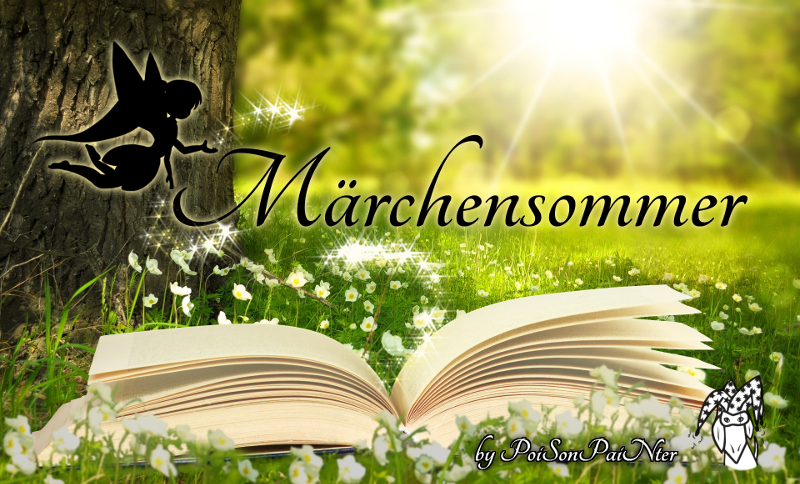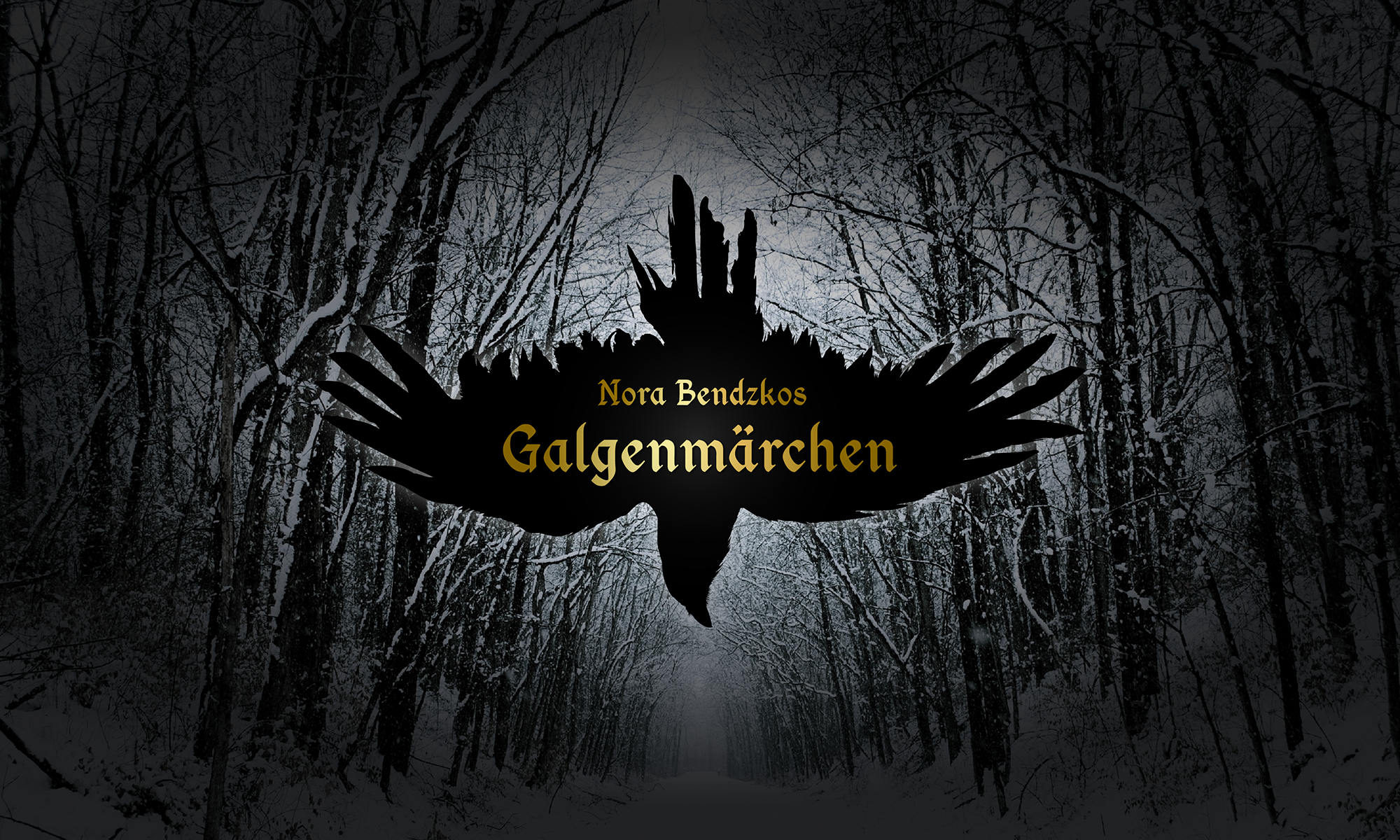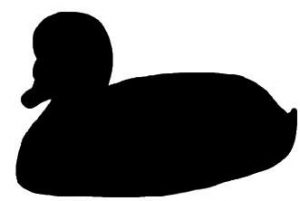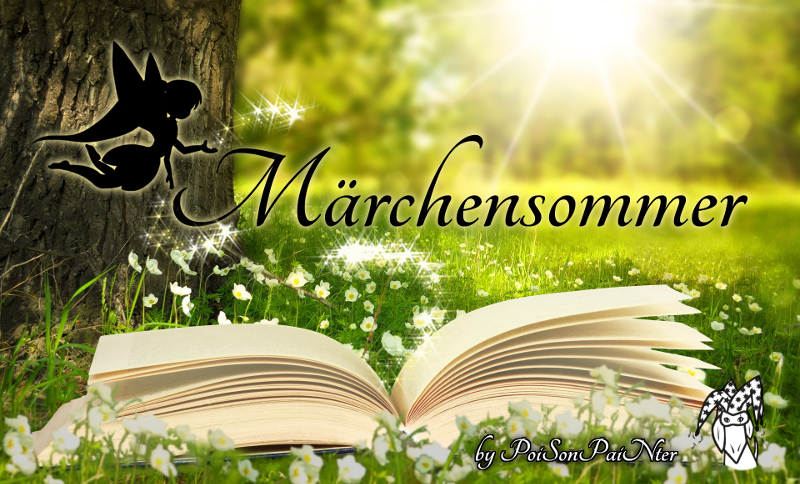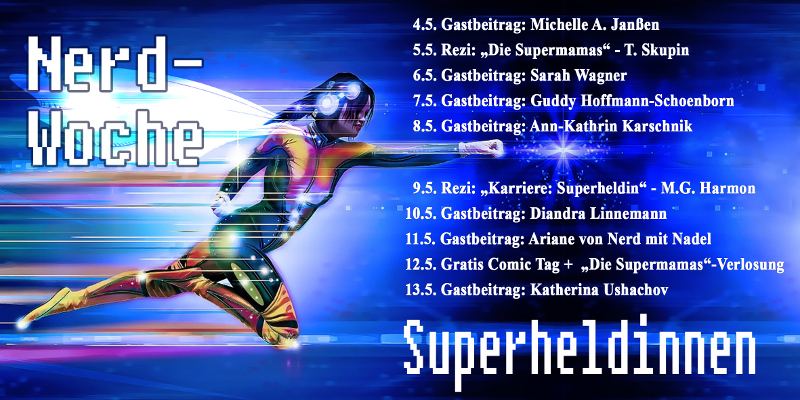Letzten Fairy Tale Summer hatte ich mir gerade vorgenommen, Rosen & Knochen, den ersten Band der Hexenwald-Chroniken, vorzustellen, dann kam Janna Ruth’s Gastbeitrag „Wie man ein Märchen adaptiert„, in dem sie genau das gemacht hat.
Dieses Jahr bekommt ihr die Rezensionen zu dieser Adaption von „Schneeweißchen und Rosenrot“ in einem „Hänsel und Gretel“ Abenteuer.
What is it about?
Die Dämonenjägerinnen Muireann and Rose aka Schneeweißchen and Rosenrot werden von einem Dorf um Hilfe gebeten. Es wird vom Geist einer toten Hexe geplagt, der feurige Hirsche, aggressive Vogelschwärme und andere Dinge auf jeden jagt, der es wagt den Wald zu betreten.
Auf der Suche nach dem Ursprung des Spuks erfahren die beiden nicht nur mehr über die schrecklichen Dinge, die im Hexenhaus geschehen sind, sondern auch mehr über sich selbst.
Können sie diesen Auftrag unbeschadet überstehen?
The reading experience
Das Buch hat nicht nur ein aufwendig gestaltetes Cover, sondern auch auf jeder Seite Äste, die die Seite umrahmen. Was anfangs doch etwas erschlagend wird, fällt bald nicht mehr auf.
Die Geschichte wechselt zwischen der Beschreibung der aktuellen Ereignisse und Visionen in die Vergangenheit. Beides ist ausführlich und fesselnd beschrieben und es war, als wenn ich mit den beiden zusammen im Hexenhaus festsaß.
Sehr klasse fand ich auch die Kurzgeschichte „Der Flötenspieler“ am Ende, die ebenfalls in der Welt der Hexenwald Chroniken spielt.
The characters
Da die Geschichte aus Muireanns Perspektive erzählt wird, hatte ich die größte Verbindung zu ihr und konnte ihre Handlungen gut nachvollziehen. Mit Rose bin ich nicht wirklich warm geworden. Was dadurch natürlich ein Nachteil für einige der Plotelemente war. Die Beziehung der beiden wirkte z.B. für mich etwas gezwungen, bei der Interaktion in diese Richtung fehlte mir etwas, dass es für mich glaubwürdig gemacht hat. Irgendwie eine emotionale Komponente, die mich hätte fühlen lassen, dass die beiden zusammengehören. So wirkte es eher, doch etwas einseitig, aber das kann durchaus daran liegen, dass wir alles aus Muireanns Sichtweise erfahren haben und nie in Rose‘ Kopf gucken konnten.
Die kämpferischen Fähigkeiten der beiden sind leider viel zu wenig gezeigt worden, aber das, was sie anwandten, machte Lust auf mehr.
Die Hexe ist ne fiese Möp und die Kinder waren für ihren kurzen Auftritt gut charakterisiert.
General Opinion
Die Integration der Märchenelemente aus „Hänsel und Gretel“ ist wunderbar gelungen und ist in einer Variation, die ich so nicht erwartet hätte. „Schneeweißchen und Rosenrot“ kommt nur namentlich zum Tragen, aber die Hintergründe der beiden lassen so viel vermuten, was es noch zu erzählen gibt, dass das nicht weiter stört. Nur die Verbindung zu ihnen war für mich etwas holprig.
Mit dieser Geschichte wurde eine faszinierende Welt erschaffen aus der ich gerne mehr lesen möchte. Mehr über diese beiden Jägerinnen, mehr neue Geschichten und ich bin gespannt, was noch kommen wird.
Stuff I’d like to add
Ein paar von euch können Goodies zu diesem Buch während des Sommers gewinnen. (Das Schreiben eigener Rezensionen zu Märchen(adaptionen) bringt übrigens auch 3 Punkte. 😉 )
Morgen gibt es dann auch noch ein Interview mit Christian.
Anne/PoiSonPaiNter
* This post was translated using deepl.com and a few very funny mistranslations were involved.
____________________________
Lies auf Deutsch
Last Fairy Tale Summer I was about to introduce Rosen & Knochen (Roses & Bones), the first volume of the Hexenwald-Chroniken (Witchforest Chronicles), then came Janna Ruth’s guest post „Adapting a fairy tale„, in which she did just that.
This year you get the review of this adaptation of „Snow White and Rose Red“ in a „Hansel and Gretel“ adventure.
What is it about?
The demon hunters Muireann and Rose aka Snow White and Rose Red are asked by a village for help. It is plagued by the ghost of a dead witch who sics a blazing deer, an aggressive flock of birds and other things on anyone who dares to enter the forest.
In their search for the origin of the spook, the two learn not only more about the terrible things that happened in the witch’s house, but also more about themselves.
Can they survive this mission unscathed?
The reading experience
The book has not only an elaborately designed cover, but also branches on every side that frame the page. What at the beginning is a bit overwhelming, soon doesn’t stand out anymore.
The story changes between the description of current events and visions into the past. Both are described in captivating detail and it was as if I was stuck in the witch house with them.
I also liked the short story „Der Flötenspieler“ (The Flutist) at the end, which also plays in the world of the Hexenwald Chronik.
The characters
Since the story is told from Muireann’s perspective, I had the strongest connection to her and was able to understand her actions well. With Rose, I didn’t really warm up. This of course was a disadvantage for some of the plot elements. For example, the relationship between the two seemed somewhat forced to me, and when interacting in this direction, something was missing that made it believable to me. Somehow an emotional component that would have made me feel that they belonged together. This way it seemed rather one-sided, but that may well be because we learned everything from Muireann’s point of view and could never look into Rose’s head.
Unfortunately, the fighting skills of the two were not shown enough, but what they used made me want more.
The witch is a nasty puppy and the children were well characterized for their short appearance.
General Opinion
The integration of the fairy tale elements from “ Hansel and Gretel “ has been wonderfully done and is in a variation that I would not have expected. „Snow white and rose red“ only comes into play through their names, but the backgrounds of the two make one suspect there is so much more to tell that it doesn’t bother any further. Only the connection to them was a bit bumpy for me.
With this story a fascinating world was created from which I would like to read more. More about these two huntresses, more new stories and I am curious what will follow.
Stuff I’d like to add
Tomorrow there will also be an interview with Christian.
Anne/PoiSonPaiNter
© For the cover belongs to its rightful owner.
